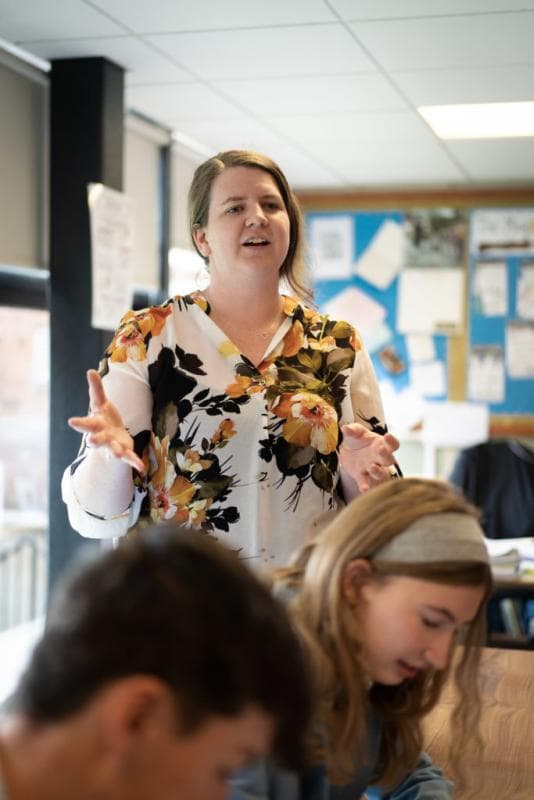Reflecting on some of the biggest questions asked by some of the greatest thinkers of all time.

In PRE we reflect on the answers given by great philosophers to Socrates’ question, ‘How should I live?’. For the majority of people in the world religion plays a key part in their thinking and everyday lives. Studying various philosophies and religious teachings gives students a broader outlook, improves their abstract thinking and helps them to understand the motivations and personal perspectives of believers. Students examine a variety of philosophical perspectives that give meaning to existence, and attempt to answer ultimate questions. They embark on a challenging, stimulating and sometimes emotive journey, for which the department provides the key skills and resilience required.
Lower School
In Year 7 pupils study a unit of philosophy, a unit focused on religion and a unit of ethics. They develop key skills like reasoning, articulating ideas clearly, interpreting abstract concepts, analysis and evaluating opinions independently. We build on previous knowledge and challenge them to assess the strengths and weaknesses of points of view. We tackle questions like,’The Nature God’, ‘What does it mean to be religious?’ and ‘What are we doing to the environment?’ In Year 8 pupils continue to seek answers to questions like, ‘Who exactly was Jesus?’ and ‘What is morality?’ They consider what it means to be human and are able to offer meaningful answers in response to these challenging questions.
Middle School
During Year 9 pupils continue to grapple with contemporary modern issues and how people of faith respond to them. This work lays a solid foundation for our GCSE course. We offer sn AQA GCSE course that combines ultimate and moral questions with a consideration of both Christian and Muslim perspectives. It involves objective reflection requiring no particular religious stancel; an open mind is needed in order to weigh up the strengths and weaknesses of an argument in order to reach a reasoned conclusion. These key skills are relevant and desirable in life and are particularly valued in the many careers that require an understanding of others, like Law, Politics, Medicine and Journalism.
“Both the GCSE and A Level courses really made me think about how I should live” Ipswich School pupil
Sixth Form
At A Level the department offers a variety of ways to ensure success. There are opportunities for students to attend conferences, independent learning and peer teaching sessions, and revision days where department members share their experience of external examination marking. Together with excellent teaching this guarantees an A Level course that is fascinating for students interested in philosophical and theological questions of meaning, purpose and truth. Universities have a high regard for the PRE A Level due to its challenging academic content and the implied ability to think critically, develop logical reasoning, debate carefully, justify opinions, empathise with others, enquire, research and write compelling essays; all of which we nurture in our students.
The course studied is OCR H573 – Philosophy of Religion; Religion and Ethics; Developments in Christian Thought.
Exam results
The average of the results in PRE over the most recent three year period (2024, 2023, 2022) is:
| GCSE | |
| 9 | 34% |
| 9-8 | 64% |
| 9-7 | 84% |
| 9-4 | 100% |
| A Level | |
| A* | 27% |
| A* – A | 79% |
| A* – B | 100% |
“After two weeks at university I came home for my Ethics folder; it is the only A Level stuff I used for my politics degree.” Former Ipswich School student
